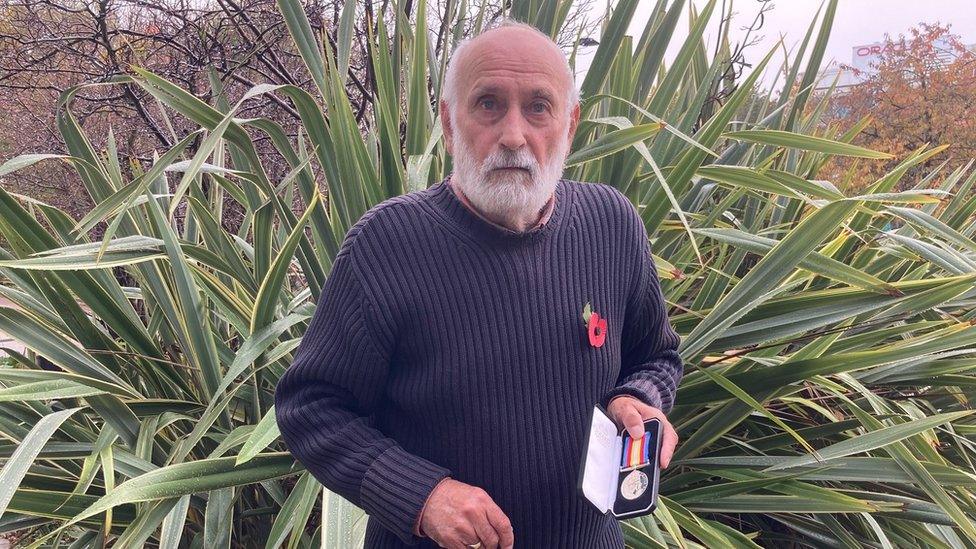'My teeth fell out weeks after nuclear bomb test'
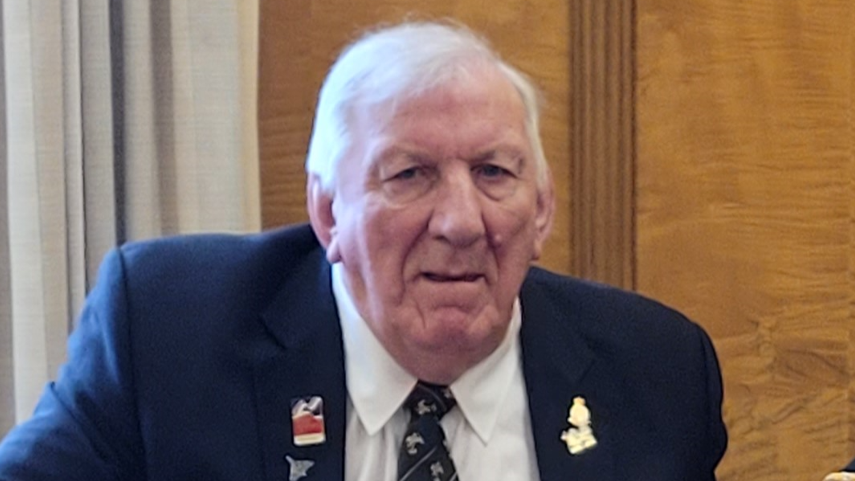
"You could see the shockwaves" - David Freeman took part in Operation Grapple in the Pacific
- Published
A veteran of the UK's nuclear testing programme in the 1950s has spoken of losing his teeth in the weeks following a blast.
David Freeman, 85, from Norwich, took part in Operation Grapple, carried out close to Christmas Island, in the Pacific Ocean, between 1957 and 1958.
"It's something you never forget – the heat, the blast, tremendous winds," said Mr Freeman.
On Tuesday, the former RAF serviceman - and the family of a late veteran, Robert Carman - received the Nuclear Test Medal, introduced by the government in 2023, external after years of campaigning.
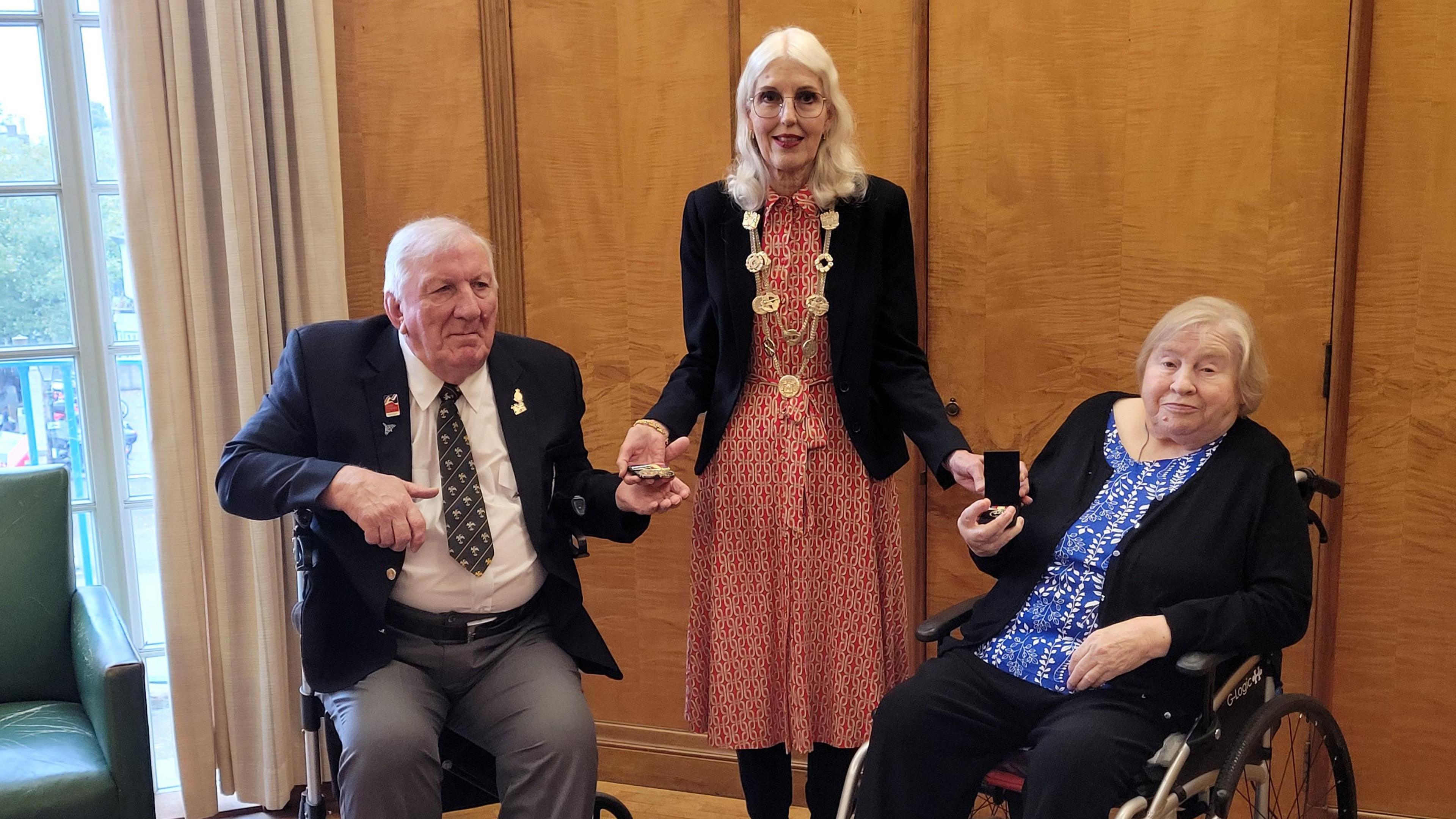
David Freeman and Pam Carman, the widow of Robert Carman, were presented with medals by Lord Mayor Vivien Thomas
The medals recognise the contribution of military, civilian, and overseas staff and personnel who took part in atomic and hydrogen bomb tests, which assured British military power during the Cold War.
"You could see the shock waves building up across the sky, and then there was torrential rain bringing down all the rubbish out of the cloud," added Mr Freeman, who worked with safety equipment during the first nuclear test in November 1957.
"Some of the sand turned to glass crystals. It's a miracle that any humans were left standing."
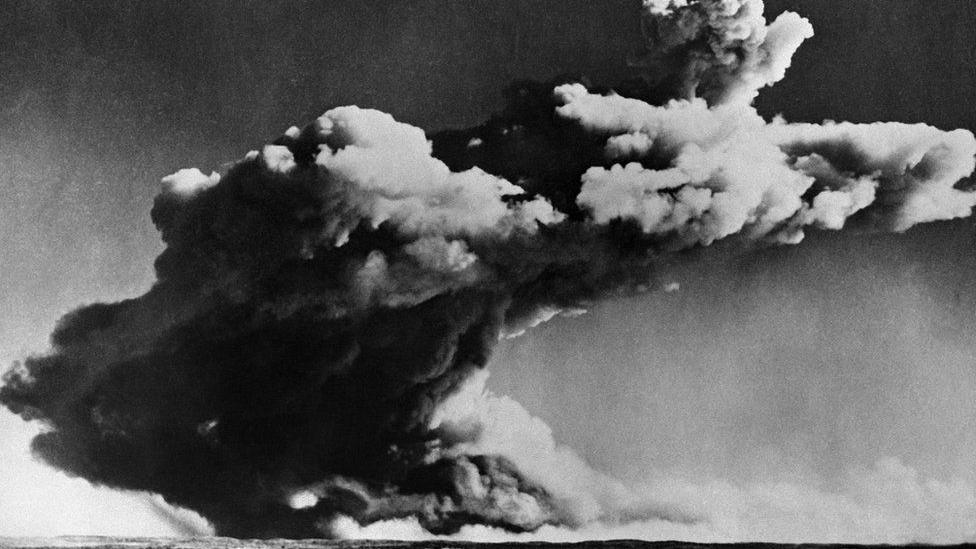
Nuclear tests took place in Australia and the South Pacific between 1952 and 1967
Mr Freeman said he received no aftercare, and weeks after returning home his gums started to bleed and his teeth fell out.
"Even now I have to blend a lot of my food due to that," he added.
"But I feel I am one of the lucky ones – I am still here."
Mr Freeman said he had since been diagnosed with two types of cancer, suffered a heart attack and lost the sight in one eye.
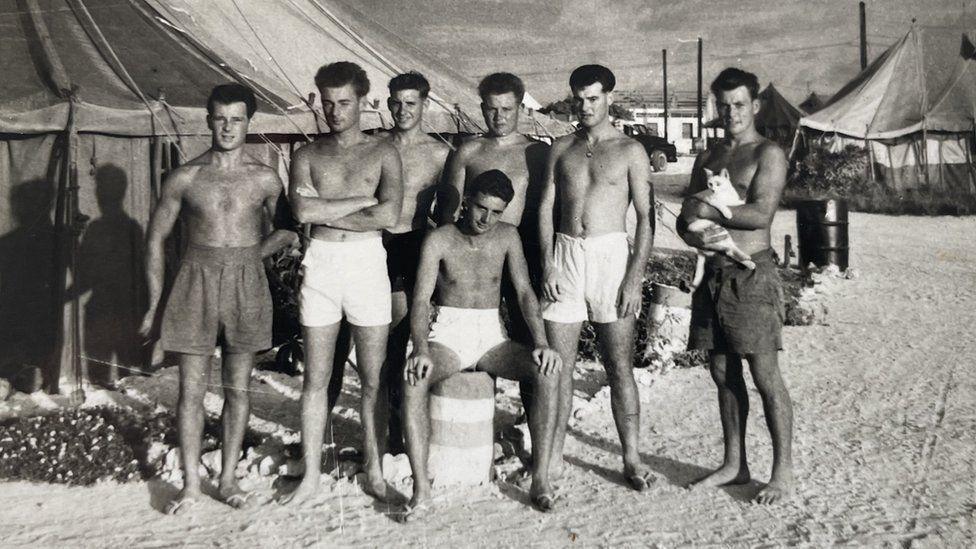
Soldiers were not initially told about the operation because of its covert nature
Earlier this year, veterans exposed to radiation during the tests called for the government to create a "special tribunal" to oversee compensation.
About 40,000 British personnel took part in the tests, with about 2,000 believed to be still alive.
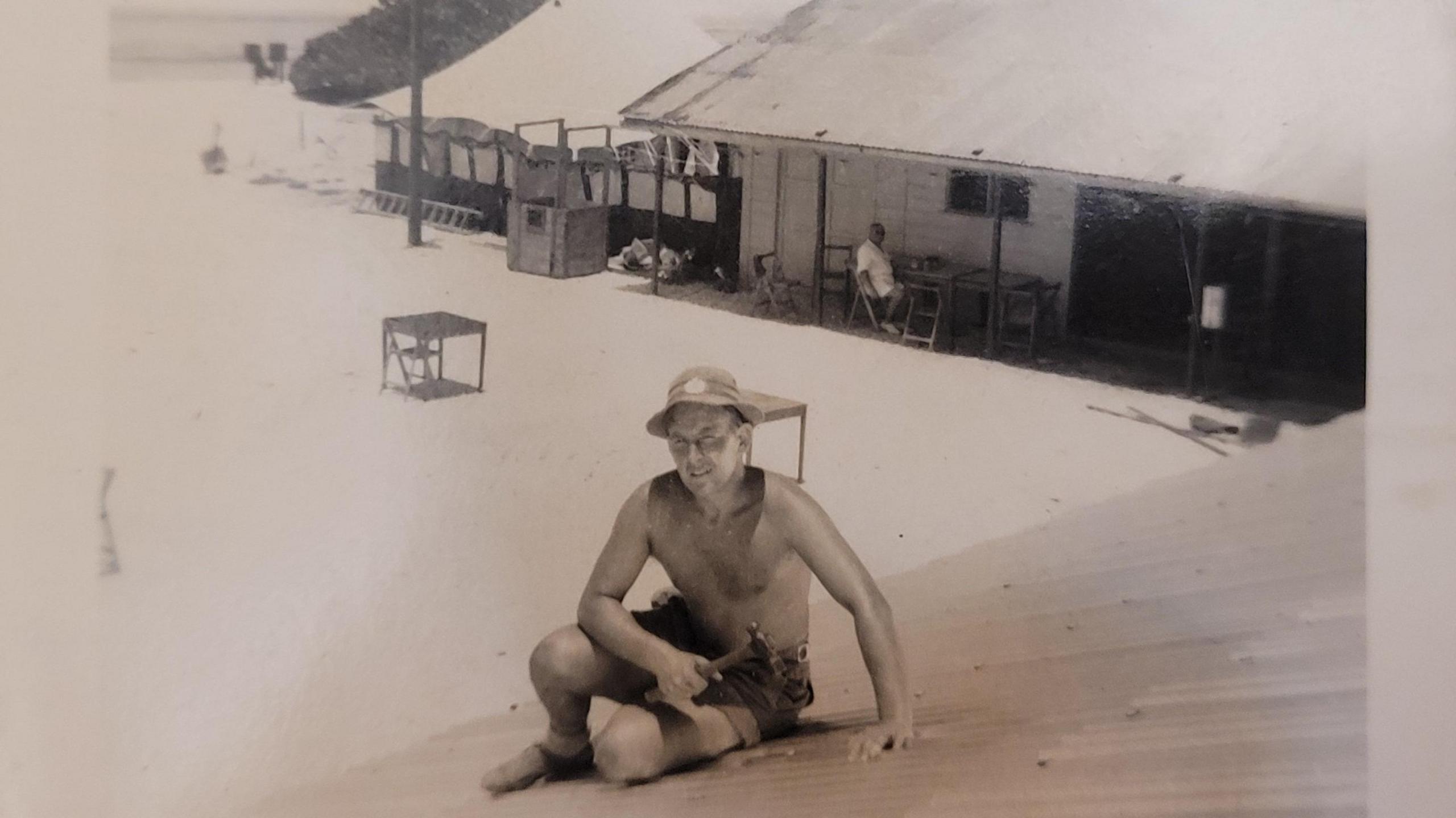
Robert Carman was deployed to Christmas Island in 1957
Robert Carman, who died in 2018 aged 88, was a former soldier from Norwich who took part in a test while serving with the Royal Engineers.
"My dad used to tell us stories about the big piles of driftwood which, after the bomb had exploded, just turned to ash," said Alison Carman, Mr Carman's daughter, who attended the medal ceremony at Norwich City Hall.
"He also said they held their hands up in front of their faces during the blast and could see all the bones in their hands.
"Today's event has been lovely. It's just a shame dad couldn't be here for it."
The Ministry of Defence said veterans had a right to apply for no-fault compensation under the War Pensions Scheme.
Get in touch
Do you have a story suggestion for Norfolk?
Follow Norfolk news on BBC Sounds, Facebook, external, Instagram, external and X, external.
Related topics
- Published17 May 2024
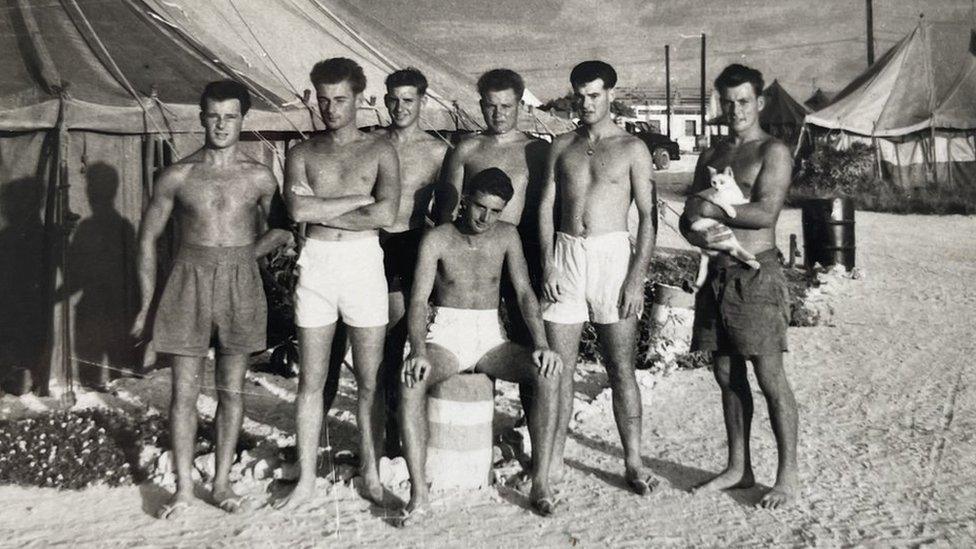
- Published28 February 2024
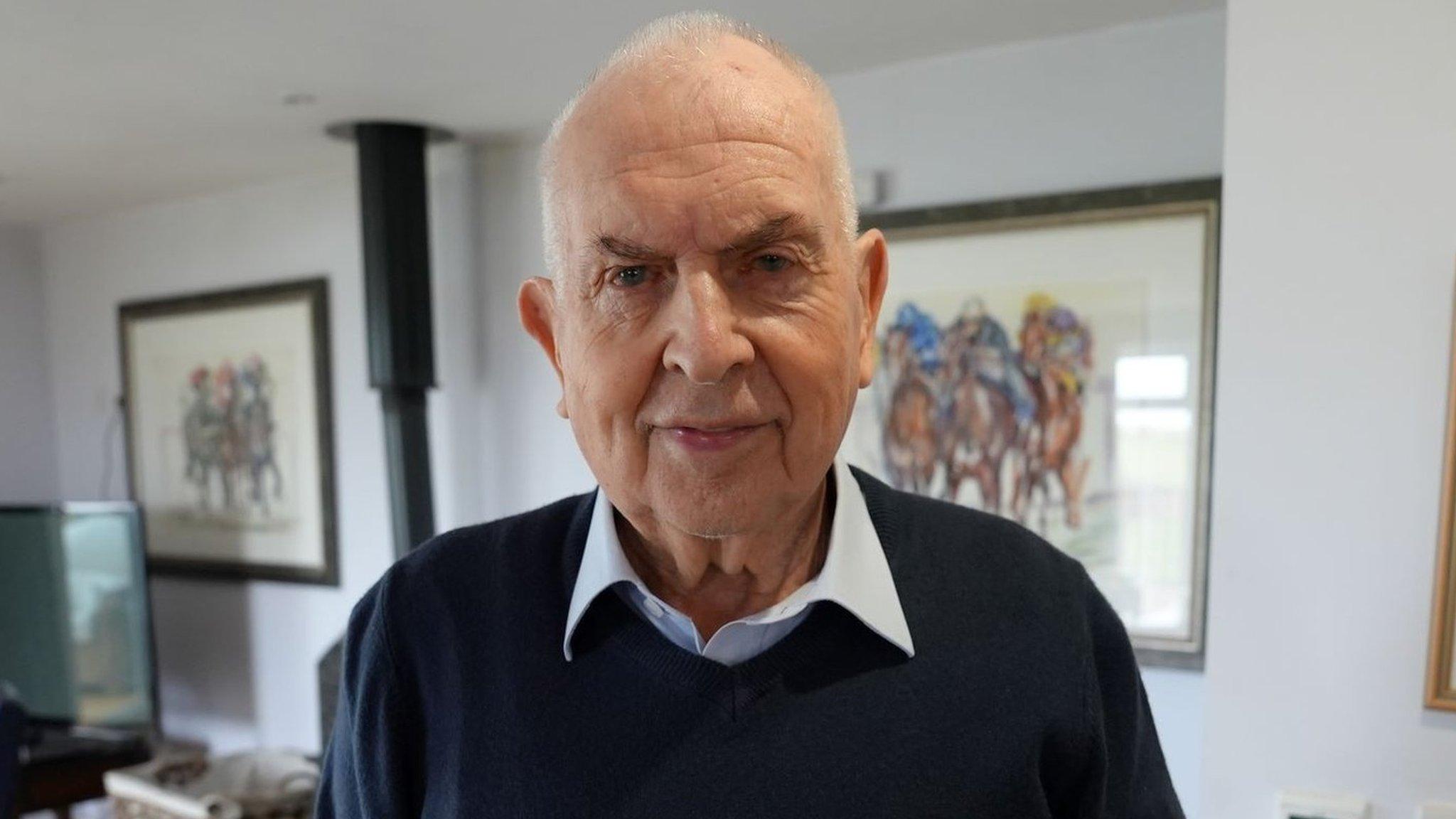
- Published13 November 2023
